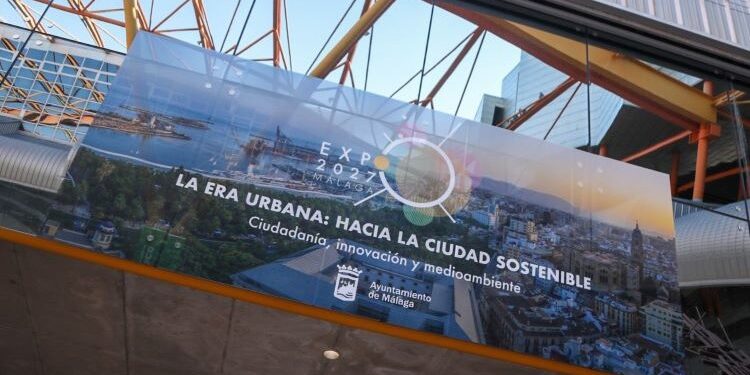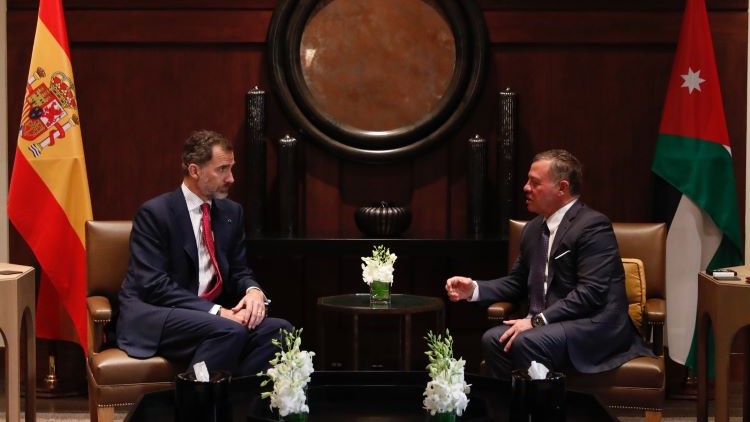Eduardo González
The Minister of Foreign Affairs, José Manuel Albares, will participate next Wednesday in Paris in the General Assembly of the International Bureau of Exhibitions (Bureau International des Expositions, BIE), which will decide whether Malaga will host the International Exposition of 2027.
The 170 member states of BIE will choose by secret ballot (one vote per country) among the five cities aspiring to host the International Exposition: Malaga, Belgrade (Serbia), Phuket (Thailand), San Carlos de Bariloche (Argentina) and Bloomington (United States).
The Government has assumed Malaga’s candidacy as a “country project”, as stated repeatedly by Albares himself, who has mobilized “all the ambassadors of Spain” to advance in the negotiations and has even taken advantage of his participation in several recent international meetings, such as the G-20 meeting in New Delhi or the UN General Assembly in New York, to address the issue with his counterparts and “ask for their vote”.
Malaga’s candidacy was initially presented by the City Council with the support of the Junta de Andalucía and the Provincial Council. It so happens that the BIE meeting will take place just three weeks after the municipal elections of May 28, so the mayor of the city, the re-elected Francisco de la Torre (in office since 2000), will arrive in time to participate in the Assembly only four days after the official start of his new mandate.
Another example of the Government’s interest was the appointment, in April 2022, of Juan José Escobar to the post of Ambassador-at-Large for the Expo Málaga 2027 Candidature. Precisely, Escobar was one of those in charge of presenting in Paris, in early June 2022, the dossier of Malaga’s candidacy. A few days later, in mid-June 2022, the Government officially presented Malaga’s candidacy in Paris, before the 170th General Assembly of the BIE.
In July, Albares asked the Diplomatic Corps accredited in Spain “the support of their respective countries to the candidacy, because if Malaga wins, the planet will win”, and in September, King Felipe VI, the President of the Government, Pedro Sánchez, and José Manuel Albares defended Malaga’s suitability before the members of a BIE mission that was visiting Spain to evaluate the Andalusian city’s candidacy. The evaluation missions apply very strict scales to assess both technical and financial issues, but also the political and social support for the Expo. In the case of Malaga, according to Foreign Affairs, “the candidacy has the support of all public administrations, civil society and citizens in general”.
Likewise, the Minister of Foreign Affairs travelled to the French capital at the end of November to once again support Malaga’s aspirations before the BIE Assembly, accompanied by representatives of the Andalusian Regional Government, the Provincial Council, Mayor Francisco de la Torre and internationally renowned Spanish personalities, such as the Malaga actor Antonio Banderas and the tennis player Rafael Nadal.
On May 26, an agreement was signed between the General State Administration – represented by the Ministry of Foreign Affairs, the Autonomous Community of Andalusia, the Provincial Council of Malaga and the City Council of Malaga for the promotion of the Expo Malaga 2027 candidacy “until the final decision of the BIE on June 21, 2023, as an event of mutual interest between the parties,” as published last Saturday in the Official State Gazette.
If it wins, the exhibition The Urban Age: Towards the Sustainable City would be held in Malaga from June 5 to September 5, 2027. It is estimated that the Expo would bring 1.8 billion euros in investment to the city. Sydney Opera House engineers have won the contract to design the Expo 2027 site in Malaga.
According to the Government, the theme of the bid affects “all countries regardless of their level of development”. “In the barely two decades that would separate this Expo from the one held in Shanghai in 2010 dedicated to the future of cities, the world population will increase by 1.6 billion inhabitants, most of whom will settle in cities,” the Foreign Office recalled in a press release. “In other words, by 2050, more than three quarters of the world’s population will be living in cities and a reflection is needed on how to make population growth and sustainability compatible,” it added.







